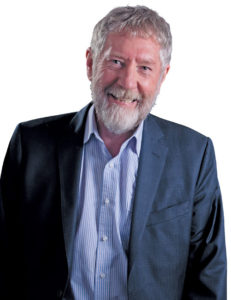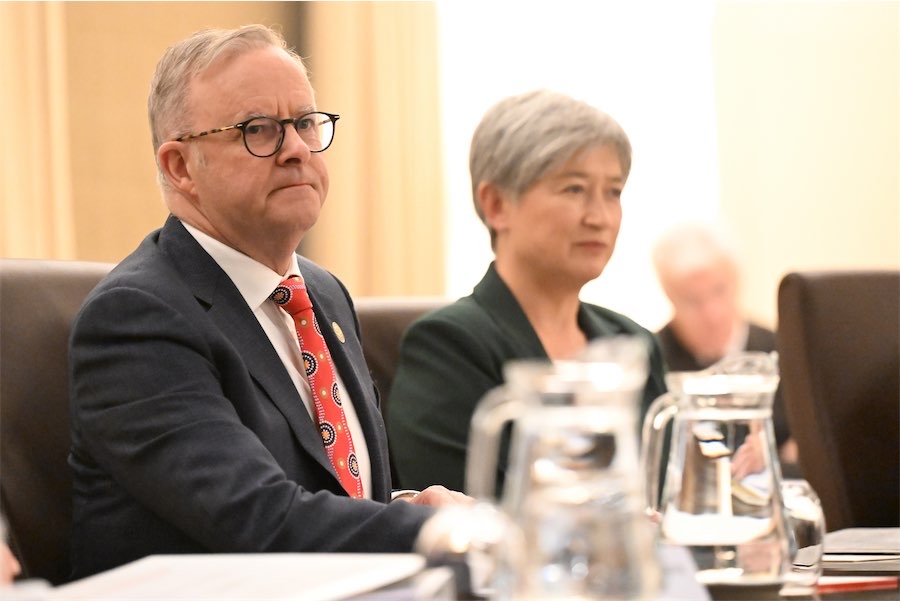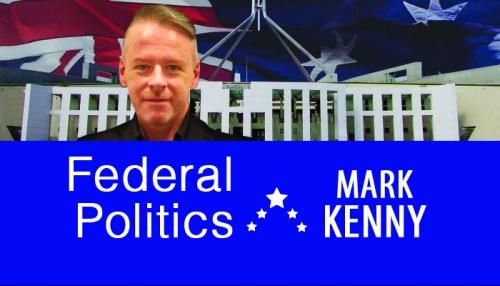“The difficulty with the Religious Discrimination Bill (2019) is that it facilitates discrimination instead of facilitating inclusiveness and tolerance. It should be rejected,” writes MICHAEL MOORE.
PRIME Minister Scott Morrison has had a credible performance in dealing with the COVID-19, the latest coronavirus. This stands in marked contrast to the way he and his government have dealt with the bushfires and climate change.

However, there is now a real danger, while media focus is on the COVID-19, the government will attempt to slip through the Religious Discrimination Bill (2019).
The most devastating criticism of the proposed religious discrimination legislation itself has come from a practising member of the Anglican Church. Michael Kirby was a High Court Justice from 1996 to 2009 following an illustrious legal career. He has a video being shared on social media expressing his concerns on the insidious nature of the proposed Bill.
The rhetoric around the Bill is to protect religious freedom. Exactly as the name implies, the Bill is discriminatory. Australia is a secular society – a society based on the principle of tolerance of the full range of beliefs. In the 2016 Australian Census the largest grouping regarding religion was the 30.1 per cent of people who identified as having “No Religion”, an increase by 7.8 per cent over the 2011 census. The next closest was those identifying as Catholic with 22.6 per cent and then Anglicans at 13.3 per cent.
The Australian Human Rights Commission in a submission on the Bill pointed out that, “consistent with the tolerant, pluralistic nature of Australian society”, it is appropriate to enshrine religious anti-discrimination processes into legislation as with race, sex and disability.
However, it also pointed out such measures include “beliefs about religion held by people who are atheists or agnostics”.
This supports the view of Justice Kirby in that these protections are not adequate in the Bill as presented.
Michael Kirby spent much of his career fighting discrimination. This should make the criticism even more devastating to the government.
To cite just a few examples, he was president of the International Commission of Jurists, Geneva (1995-2008), a member of the High Commission Human Rights’ Judicial Reference Group (2007-09), a member of the Eminent Persons Group on the future of the Commonwealth of Nations and a Commissioner of the UNDP Global Commission on HIV and the Law 2011-2012.
The fundamental tenet is that it is not good enough to provide protection from religion at the expense of other rights. Priority in the Religious Discrimination Bill (2019) is given to “religious bodies”.
Religious bodies include religious schools, religious charities and other religious bodies such as hospitals and aged-care homes. Such bodies can discriminate, if the discrimination is in good faith and in accordance with their religious doctrines, tenets, beliefs or teachings.
It is this sort of exemption that gives them priority over secular practices and beliefs. It is secular processes that have been the cornerstone of our government and societal practice.
In Kirby’s words: “Secularism is one of the greatest gifts that the British gave us in Australia”. And later it “ensures there is space for everyone”. The practice has never been perfect, but it has held us in good stead.
The fundamental danger of the Religious Discrimination Bill (2019) is that it has the potential to divide society.
There is already enough divisiveness in our community. There remains a growing gap between the “haves” and the “have nots”. We have made some progress tackling sexism, racism and disabilities. The last thing we need to do is to increase divisiveness in our country.
Do we really want to live in a society where a boss can exclude a divorced worker because the boss’ religion identifies it as a sin? What about the only pharmacist or doctor in a remote town being able to refuse birth control to an unmarried woman? Or a doctor who, because of his own religious beliefs, would be able to refuse stem cell treatment to a person with a disability or debilitating illness.
The difficulty with the Religious Discrimination Bill (2019) is that it facilitates discrimination instead of facilitating inclusiveness and tolerance. It should be rejected.
Who can be trusted?
In a world of spin and confusion, there’s never been a more important time to support independent journalism in Canberra.
If you trust our work online and want to enforce the power of independent voices, I invite you to make a small contribution.
Every dollar of support is invested back into our journalism to help keep citynews.com.au strong and free.
Thank you,
Ian Meikle, editor





Leave a Reply